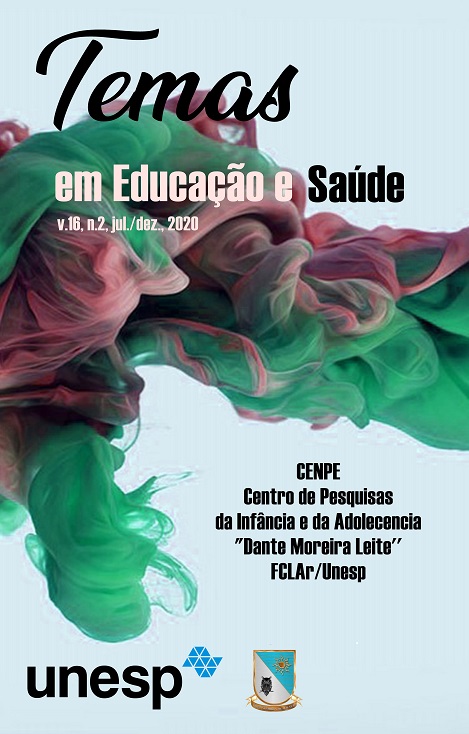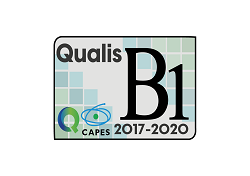Reflecting on a philosophical matrix that can embrace the epistemology of active methodologies before digital humanism
DOI:
https://doi.org/10.26673/tes.v16i2.14412Keywords:
Cyberculture, Cyberspace, Pedagogical intentionality, LearningAbstract
The present study reflects on the theoretical and practical foundations that make up educational practices in the context of cyberculture in the face of the cognitive possibilities presented by cyberspace experienced in daily university education. Among the questions researched are how to epistemologically resignify the educational practices in relation to learning processes, enabling the questioning about: how to project the teacher pedagogical action in front of the cognitive possibilities of cyberspace? What is the teaching role in relation to the student immersed in the daily experience of cyberculture? Faced with the emerging contemporary scenario of liquid transformations, we sought to deepen the meaning of cyberculture in the perspective and its relationship with teaching practice. Later, we studied pedagogical practices that emphasize the communicative potential of cyberspace in cognitive construction. The research reflects on university learning experiences and the sense of a pedagogical internationality focused on the connections between cyberculture and cyberspace. As for the theoretical framework of the expressions "Cyberculture" and "Cyberspace", both are constituted and revisited in the works of Pierre Lévy. The study is bibliographic and of a qualitative, dialectic character and is linked to the Doctoral research in the PPGEDU of the URI- Frederico Westphalen, in the Line: Educational Processes, Languages and Technologies.
Downloads
References
ALMEIDA, M. E. B. Tecnologia na escola: criação de redes de conhecimento. In: ALMEIDA, M. E. B.; MORAN, J. M. (Org). Integração das tecnologias na educação: salto para o futuro. Brasília: Ministério da Educação; SEED, 2009.
BACICH, L.; MORAN, J. Metodologias ativas para uma educação inovadora: uma abordagem teórico-prática. Porto Alegre: Penso, 2018.
CERUTTI, E.; GIRAFFA, L. M. M. Uma nova juventude chegou a Universidade: e agora, professor. Curitiba: CRV, 2014.
NOGARO, A.; CERUTTI, E. As TICs nos labirintos da prática educativa. Curitiba: CRV, 2016.
DEMO, P. Universidade, aprendizagem e avaliação. 2. ed. Porto Alegre: Horizontes reconstrutivos, 2004.
DEMO, P. Desafios modernos na educação. 19. ed. Petrópolis, RJ: Vozes, 2014.
FLICKINGER, H. A caminho de uma pedagogia hermenêutica. Campinas, SP: Autores Associados, 2010.
FREIRE, P. Pedagogia da Autonomia. 25. ed. São Paulo: Paz na Terra, 1997.
GARCIA, M. F. et al. Novas competências docentes frente às tecnologias digitais Interativas. Revista Teoria e Prática da Educação, Maringá, v. 14, n. 1, p. 79-87, jan./abr. 2011.
KILPATRICK, W. H. Educação para uma sociedade em transformação. Trad. Renata Gaspar Nascimento. Petrópolis, RJ: Vozes, 2011.
LEVY, P. O que é virtual. Trad. Paulo Neves. 34. ed. São Paulo, 2011. p. 160.
LÉVY, P. Cibercultura. Rio de Janeiro: Editora 34, 1999.
LÉVY, P. As tecnologias da inteligência: o futuro do pensamento na era da informática. Trad. Carlos Irineu da Costa. 2. ed. São Paulo: Editora 34, 2010.
MARCOVITCH, J. A informação e o conhecimento. Revista São Paulo em Perspectiva, São Paulo, v. 16, n. 4, p. 3-8, out./dez. 2002.
MORAN, J.; MASETTO, M. T.; BEHRENS, M. A. Novas tecnologias e mediação pedagógica. 21. ed. Campinas, SP: Papirus, 2013.
SANTOS, J. Aprendizagem significativa: modalidades de aprendizagem e o papel do professor. 1. ed. Porto Alegre: Mediação, 2012.
SILVA, M. Internet na escola e inclusão. In: ALMEIDA, M. E. B. Tecnologia na escola: criação de redes de conhecimentos. Salto para o futuro. Brasília: Ministério da Educação; SEED, 2012.
Downloads
Published
How to Cite
Issue
Section
License
Os manuscritos aceitos e publicados são de propriedade da Temas em Educação e Saúde. Os artigos publicados e as referências citadas na Temas em Educação e Saúde são de inteira responsabilidade de seus autores. É vedada a tradução para outro idioma sem a autorização escrita do Editor ouvida a Comissão Editorial.







